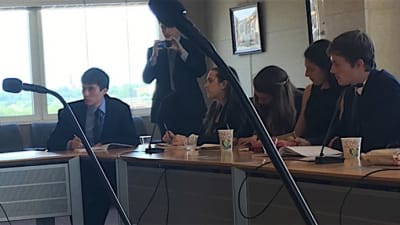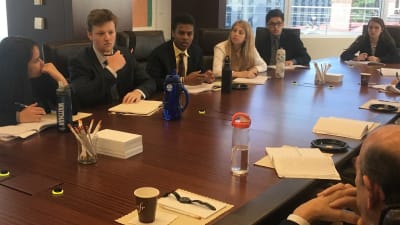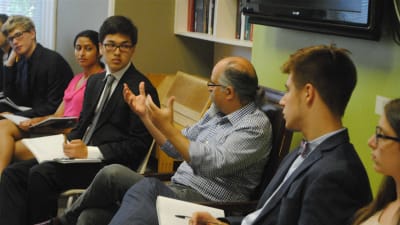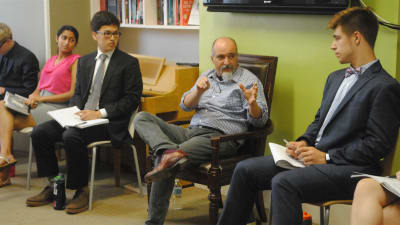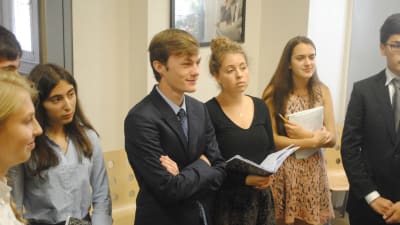Israelis, Palestinians, and Seglettes
Is there a challenge more intractable than the Israeli-Palestinian dispute? The conflict is so filled with fierce misunderstanding that every word, every historical event, every intention can cause conflagration. And yet the problem remains, and will remain until we have leaders–perhaps including a few SEGL graduates–who fix it.
This past week, our students heard and discussed three key viewpoints from three key leaders whose work continues to impact the conflict.
We began with SEGL’s account of Israeli-Palestinian history: the competing promises of T.E. Lawrence and the Balfour Declaration, the competing boundaries in 1948, 1967, and today, the competing visions for the future within Israel and within the Palestinian leadership. This historical account makes every attempt to be unbiased, but we also told the students that many observers on both sides would want to add, subtract, or edit each PowerPoint slide we shared. Skeptical eyes and ears are a must in this area.
(We also underlined another SEGL truism: if, after a case study, you want to hear a view different from the ones presented, say something! If there is enough interest, we can often arrange for a supplementary speaker later in the semester.)
Our first visit was to the American Israel Public Affairs Committee (AIPAC), the leading pro-Israel lobbying organization in the United States, where students met with Adam Teitelbaum, AIPAC’s Leadership Development Director. In this capacity, Teitelbaum works with young people around the country to carry out AIPAC’s goals.
Our second visit was to the Council on Foreign Relations, where we met longtime foreign policy expert Elliott Abrams. Abrams served in numerous foreign policy roles under Presidents Reagan and George W. Bush, most notably as deputy assistant to the President and deputy national security advisor in charge of Middle East policy. (He also spent time as President of the Ethics and Public Policy Center in Washington, DC.) Abrams gave
Finally, we met with Ghaith al-Omari, a former top advisor to Palestinian leader Mahmoud Abbas and a negotiator in (among other negotiations) the 2000 Camp David peace talks. Al-Omari, who now works with the Washington Institute for Near East Policy, shared stories and strategies from his time as a negotiator. For example, it is not enough to negotiate so that your side “wins.” You must also ensure that the speech your “opponent” gives to her people allows her to claim victory as well–otherwise, the deal will fall through.
The three viewpoints were quite varied, and many students reported feeling convinced by each speaker’s strong arguments. In informal and formal discussions that followed, many noted how valuable it was to hear the side they had understood less. Some also were struck by the conciliatory tone all three struck: was there more underneath the surface, or more to be learned from more radical voices?
Learning how to ask tough-but-respectful questions and how to discuss the most deeply-felt of issues is an essential part of leadership, and it is an essential part of an SEGL education. We’re proud of how our students handled this case study (and they continue to discuss it over meals and on walks to and from school!).
Meanwhile, we made the best of a last-minute speaker rescheduling to go bowling in Chinatown. The unexpected free time added a bit more camaraderie and fun to a very full week!
